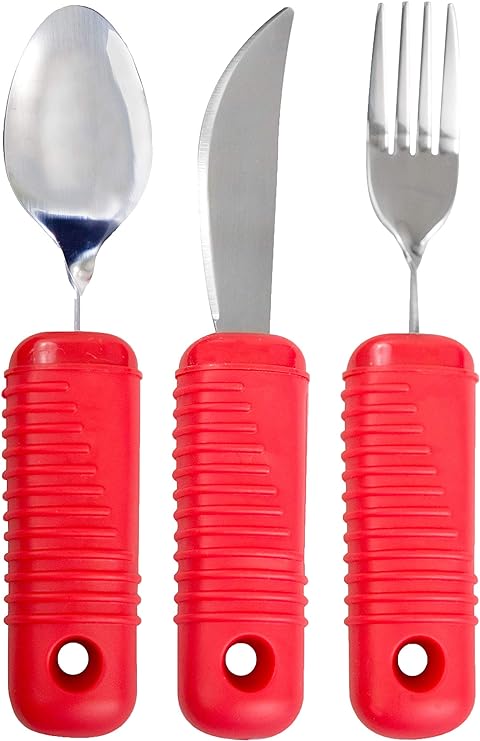Nutrition plays a vital role in the care of people with middle to late-stage dementia. As the disease progresses, eating and drinking can become increasingly challenging. Here’s what you need to know to help your loved one maintain proper nutrition and hydration.
1. Create a Relaxing Mealtime Environment
A calm and peaceful space can make all the difference. People with dementia may feel overwhelmed by loud noises or too much activity. Ensure the dining area is comfortable and free of distractions.
- Use soft lighting or calming music to create a soothing atmosphere.
- Limit sensory overload by turning off the TV and keeping conversations quiet and pleasant.

2. Vision Changes and Dementia Nutrition
As people age, it’s common for their vision to decrease, but for individuals with dementia, this can become even more challenging. Dementia affects the brain’s ability to process visual information, making it harder for individuals to recognize food, assess portion sizes, and differentiate between colors and textures.
- Difficulty Distinguishing Foods: Dementia can make it hard to differentiate between items on a plate. If foods look too similar or blend into the plate, it may confuse your loved one and lead to food refusal.
- Portion Size Challenges: Poor vision can make it hard to gauge how much food is on the plate, leading to overeating or undereating, which can harm overall health.
Spillproof – Scoop Dish for Adults
Scoop plates with raised edges are designed to get the food from the plate to the utensil with one simple motion.
Caregiver Tips:
- Use contrasting colors: A red plate with colorful food helps distinguish food from the plate and the plate from the table.
- Serve smaller portions: This helps individuals identify their food better and reduces overwhelm.
- Choose high-contrast utensils: Using utensils that stand out against the food makes eating easier.
- Encourage slow eating: This gives them time to process their body’s signals and avoid overeating or undereating.
By making these small adjustments, you can help your loved one overcome visual challenges and enjoy their meals more comfortably.
3. Offer Small, Frequent Meals
Large meals can be overwhelming, and people with dementia may not remember when they last ate. Instead:
- Serve smaller meals or snacks throughout the day.
- Include easy-to-eat finger foods like fruit slices, sandwiches, or cheese cubes.
- Keep nutritious snacks readily available.
4. Focus on Familiar and Favorite Foods
As dementia progresses, your loved one may struggle to recognize or enjoy unfamiliar foods.
- Stick to meals they’ve always loved and recognize.
- Use strong flavors, colorful foods, and appealing textures to stimulate appetite.
5. Address Weight Loss Proactively
Unintentional weight loss is a serious issue for people with dementia. It can weaken the immune system, reduce muscle strength, and accelerate health decline. Learn more about Dementia-related complications here.
Preventing and tracking weight loss is essential:
- Monitor weight regularly: Weigh your loved one weekly or biweekly and keep a record.
- Track eating habits: Note patterns such as food refusal or smaller portions eaten over time.
- Adjust meals as needed: Add calorie-dense but nutritious foods like avocados, peanut butter, or full-fat yogurt.
- Watch for signs of swallowing difficulties: If your loved one struggles to swallow, consult a speech-language pathologist.
Helpful Tool: The Alzlog app makes tracking weight, eating patterns, and behavioral changes easy. With Alzlog, you can monitor nutrition-related concerns, share them with healthcare providers, and stay on top of your loved one’s overall health. Learn more about Alzlog here.

6. Prioritize Hydration
Dehydration is a common issue that can lead to serious health problems, including confusion, infections, and falls. Learn more about dehydration here.
- Aim for 8–10 glasses of fluids a day.
- Offer a variety of drinks, like water, juice, or herbal tea, and consider hydrating foods like soups, popsicles, or fruits.
- Monitor for signs of dehydration, such as dark urine, a strong odor, or reduced bathroom visits.
Pro Tip: If the urine has a strong foul smell, it may signal a urinary tract infection (UTI). UTIs can cause behavior changes, increased confusion, or loss of appetite in older adults. If something feels off, have your loved one checked for a UTI.
7. Consider Supplements if Needed
If your loved one struggles to eat enough, consult their doctor or a registered dietitian about supplements like protein shakes or vitamins. These can fill nutritional gaps and help maintain their strength.
8. Avoid Restrictive Diets
Unless medically necessary, steer clear of restrictive diets. Malnutrition can worsen cognitive decline. Focus instead on offering a balanced diet tailored to their preferences.
9. Be Mindful of Medications
Certain medications can impact appetite or digestion. If this becomes a concern, talk to the doctor about potential adjustments or alternatives.

10. Plan for Advanced Stages
As dementia progresses, eating can become more difficult. Some individuals may refuse to open their mouths or let anyone feed them.
- Discuss feeding tubes early, preferably when your loved one can share their wishes.
- Most people prioritize quality of life over life-prolonging measures. Respecting these wishes is crucial when making difficult decisions.
11. Encourage Physical Activity and Socialization
Activity and connection can improve both appetite and digestion.
- A short walk, a few stretches, or some time outdoors can make mealtimes more successful.
- Sharing meals with family or friends can make eating feel less like a chore and more like a social experience.
In Summary
Proper nutrition and hydration are critical for people with dementia, especially in the middle to late stages. By creating a calm environment, addressing vision challenges, offering small frequent meals, preventing weight loss, ensuring hydration, and involving healthcare professionals, you can help your loved one thrive despite the challenges of dementia.
Remember, nutrition isn’t just about food. It’s about connection, comfort, and care. These small steps can make mealtimes more enjoyable and ensure your loved one receives the nourishment they need for a better quality of life.
Dr Neal Barnard
Power foods for the brain!
Hi, I'm Larea, I am a Registered Nurse specializing in Dementia Care, with 30 years of experience supporting dementia patients and their families. Over the years, I have provided care in diverse settings, including homes, hospitals, nursing homes, assisted living facilities, and hospice. My passion is guiding caregivers, sharing my knowledge and experience to help them navigate the challenges of dementia care with confidence and compassion.










